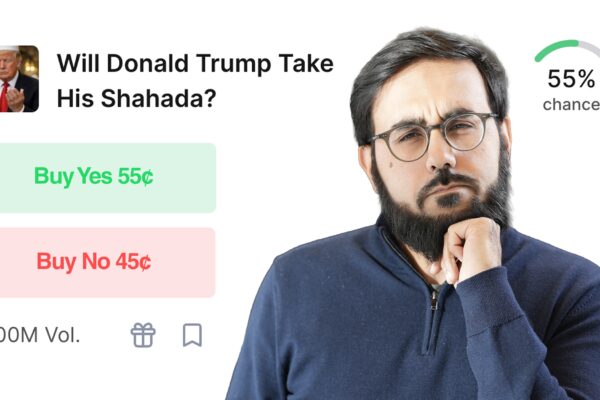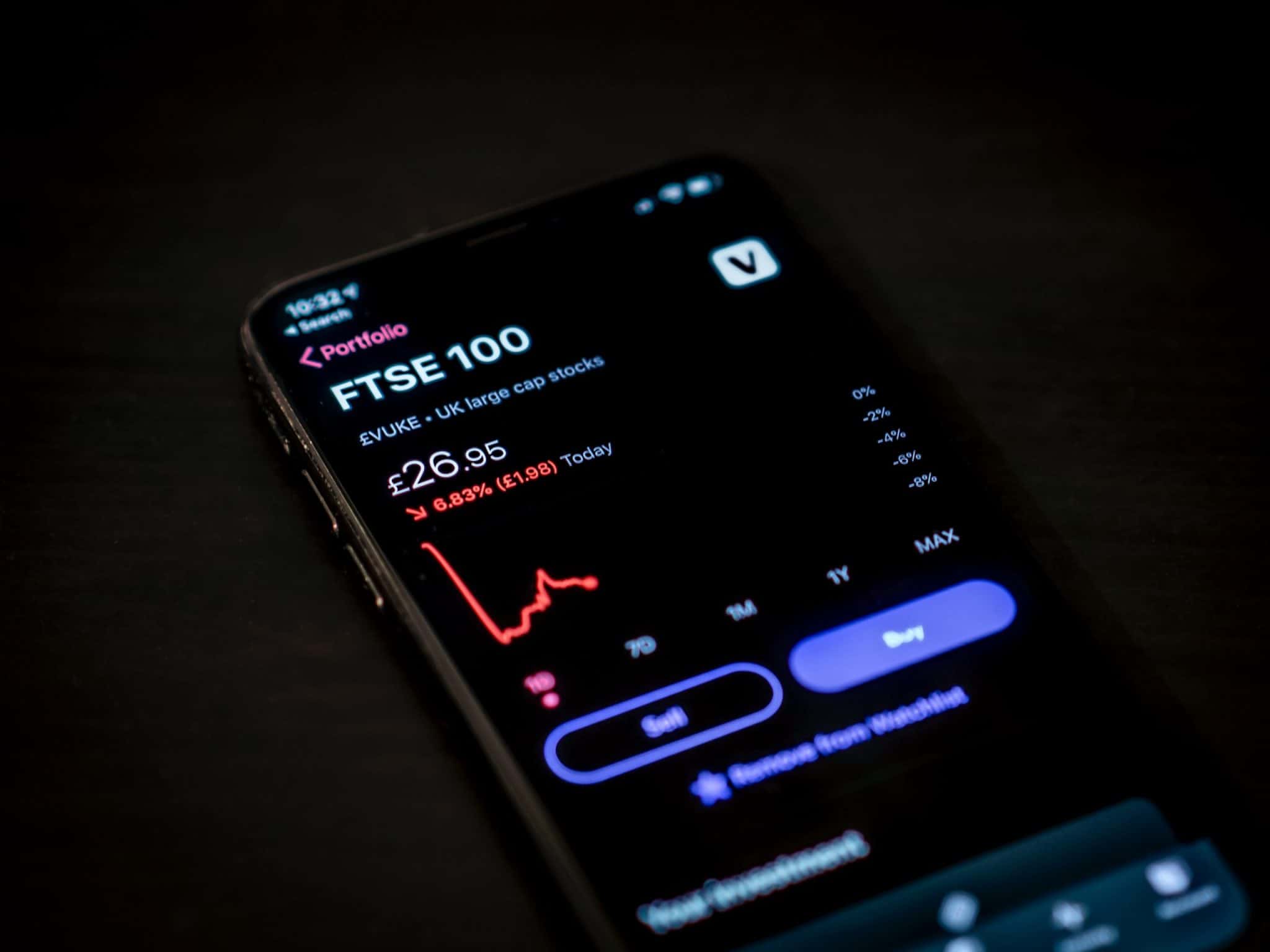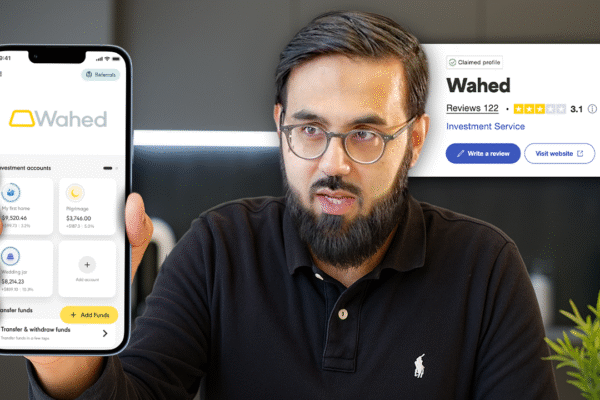
Are Prediction Markets Halal or Haram? The Truth About Polymarket & Kalshi
06 February 2026 7 min read


Adil Hussain
Head of Content
9 min read
Last updated on:
The internet and smartphones allow a completely different retail trading experience than was possible mere decades ago.
Instant buys and sells with the click of a screen, real-time data, trading fractional shares, and of course, zero-fee trades. Brokers like Robinhood, Trading 212, Freetrade and a plethora of others have now sprung up.
But how do those brokers actually make any money? Are we actually ending up paying more? We investigated and report our findings below.
We share our ultimate view on zero-commission brokers and how they are best used.
Commission-free trading means that you can buy or sell a share without being charged a fee.
Historically, brokers have attracted customers by undercutting their rivals when it comes to trading fees or offering certain perks. Brokers that charge higher fees, such as Hargreaves Lansdown, justify their fees by claiming to offer a more ‘premium’ experience, from a better customer service to a larger variety of stocks.
In 2014, Robinhood came along and disrupted the US brokerage industry by not charging any fees for trading shares. Sensing the threat, many brokers followed this trend.
A broker is in the business to make money, and there are a few ways zero-fee brokers make money:
Don’t worry – we’ll explain all the complicated terms below.
Rehypothecation and payment for order flow (PFOF) are all the rage in zero-fee broker business models so it’s important you understand them if you choose these brokers.
Rehypothecation sounds complicated, but all it means is when a broker uses the stocks you own as a collateral for their own market activities.
An example of rehypothecation is when a broker participates in share lending by allowing short sellers to borrow your stock. It’s your stock that is being used, but the broker gets the “rent” for it.
Then we have PFOF, which has become the de facto stable revenue stream for a lot of brokers.
The Securities and Exchange Commission (SEC) in the USA defines it as: ‘Payment for order flow is a method of transferring some of the trading profits from market making to the brokers that route customer orders to specialists for execution.’
What this means is that brokers will make deals with specific market makers and agree to route your buy and sell orders to them, in exchange for this special deal, your broker receives a small compensation.
Why does the market maker pay for your order? Because they make money on the spread between the bid and ask price, so the more orders they receive, the more money they make. It’s also interesting to note that in this age of quants and algorithms, order data is very valuable for computers to keep track of the market. And with free trade apps now making significant volume in the market, having that order data ahead of everyone else is really worth paying for.
There are a range of brokers offering zero-fee trades that are easy to sign up to.
But it’s important to understand that nothing is truly free, and while a commission-free broker does not charge you for trading upfront, they make money in other, more indirect, ways. You should understand these costs before you sign up.
Probably the most famous name in commission-free trades in the UK, Trading212 was founded in Bulgaria in the mid-2000s.
After entering the UK market in 2016, Trading212 began offering zero-fee trades in the footsteps of Robinhood across the pond. This has led Trading212 to become the most popular broker of this category.
Founded in 2016, Freetrade is a British startup that aims to be the Robinhood for the European market.
Freetrade’s whole premise is zero-fee trading and ease of use for the retail investor.
Etoro is an Israeli company founded in 2007. They began offering services to the UK market in 2013.
They offer a wide range of stocks and notably also offer cryptocurrencies.
IG is a British trading platform and a constituent of the FTSE 250 index.
It was founded in 1974 and is considered one of the veterans of the British brokerage industry. Technically, IG is not a completely zero-fee broker since it is only zero-fee for US shares.
Commission-free brokers were born in the age of the smartphone. They’re tailored towards younger millennials and Gen Z whose primary mode of access is through apps.
These brokers offer a seamless app experience with a navigable UI whose whole purpose is ease of use and zero friction.
From opening accounts online with ease and sending orders with a minimal amount of clicks, this category of brokers is known for a hassle-free experience.
With the advent of commission-free trading, the average person can invest in a wide variety of stocks with as little as £1.
Gone are the days of high minimum balances and extortionate fees. Fractional shares allow the retail investor to purchase parts of shares, so you don’t actually have to spend thousands on a single share of AMZN.
Zero-fee brokers caused a ripple effect in the industry and have caused other brokers to realise that unnecessarily high fees cannot be justified in this market. Competition is a good thing for the average investor!
In the era of high fees, a massive consideration when choosing a broker was how the fees would detract from your overall portfolio in 10 years’ time.
You would have to calculate your projected return and subtract the massive cut that would be given to the broker from your investments.
This worry does not exist anymore, at least not at the level it did.
We’ve explored the amount of indirect fees charged by these brokers, however small they may be. And while these fees are not necessarily ‘hidden’, the commission-free moniker can make it seem like the fees are negligible.
You would be wrong to think that of course. Once you’ve been investing for a few years and your portfolio grows an order of magnitude even these small indirect fees will hit your portfolio.
Now that it is so easy for everyone to just invest any amount of money they want with zero barriers, it is easier to get sucked into meme-culture and follow the herd.
High fees of the past would make you think twice about trading a stock because your wallet would take an immediate hit. This barrier is no more, so meme stocks This barrier is no more, so meme stocks abound.
This is bad for the average investor if it causes you to partake in an unnecessary speculation with your money.
It’s also extremely telling that most of these apps do not have advanced stock research, data, or screening functionality. If you’re not even providing that, how is your customer set up to actually invest in something that is properly researched, understood and worthwhile?
There is a famous saying on the internet, if the product is free, you are the product.
This rings true when it comes to commission-free brokers. While these brokers have genuinely helped the average retail investor get started in the market, there is a cost.
You have become the product.
Whether it’s your shares being lent to others or your order flow being sold to make money or your data, it’s important to understand how and why brokers can offer such an enticing package.
That doesn’t necessarily mean, by the way, that you are getting a costlier or worse service (the FT did a great article on this), but it is important to fully understand the bargain you are making.
zero-commission brokers often do not cover smaller stocks – or if they do – they charge for that. They also usually don’t have anywhere near as extensive a coverage of funds, ETFs and other instruments. This is particularly relevant for sharia-compliant investors as they are often looking for more niche products.
Our view is that overall zero-commission brokers are definitely a viable and usually cheaper way to invest. Their coverage is less for certain sharia-compliant funds so that’s one thing to watch out for.
For more reading you should definitely check out our head-to-head comparison between mainstream brokers and low-cost brokers.
For a guide on halal investments, visit our curated list reputable Sharia-compliant providers.

06 February 2026 7 min read

26 August 2025 7 min read

24 July 2025 15 min read
Leave a Reply